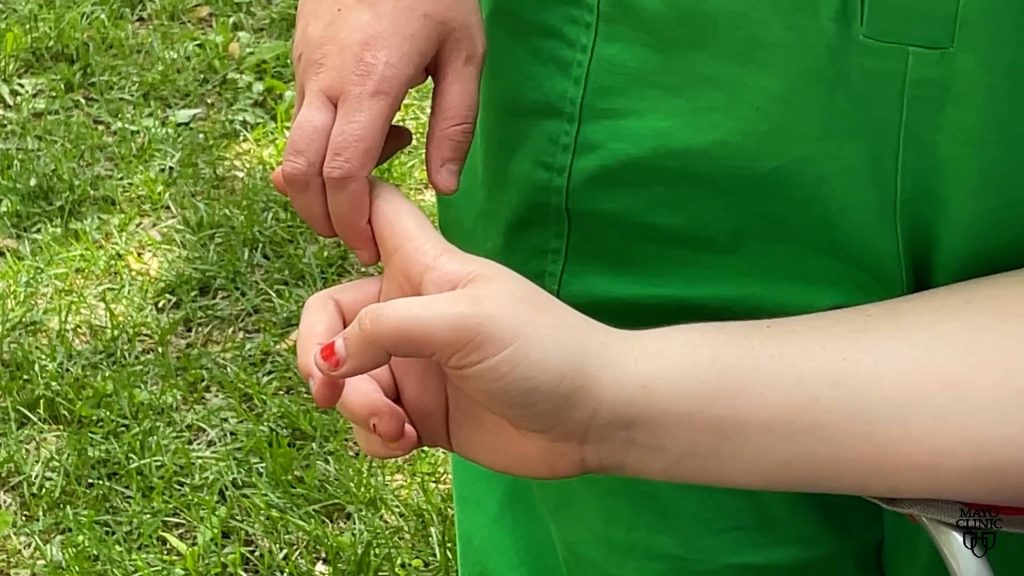-
Cancer
Cancer and the LGBTQ+ community: Mayo Clinic expert addresses key topics

ROCHESTER, Minn. — Being diagnosed with cancer is a hardship on its own, but it's especially challenging if a person is a member of the LGBTQ+ community.
Jewel Kling, M.D., director of women's health at Mayo Clinic in Arizona, explains that stigma and discrimination create barriers to healthcare, placing the LGBTQ+ community at heightened risk for certain forms of cancer due to delayed cancer screenings as well as challenges with survivorship care.
Increased cancer risks
"It's really important to point out that we see health disparities within the LGBTQ+ community," says Dr. Kling. "For the most part, these disparities do not have to do with a person's identity or because a person is lesbian, gay or transgender. But instead, they are a result of other aspects such as stigma, discrimination, lack of access to care and lack of inclusive care that allows all to share their authentic self."
These factors may affect the rates of screening for breast cancer for women who identify as lesbian. "If a lesbian woman doesn't have access to care or doesn’t have inclusive care where she can be her authentic self with her clinician, she may not go for that screening mammogram to evaluate for breast cancer early on," says Dr. Kling.
Men are also at risk. Men who have sex with men and people that are HIV positive are at higher risk for HPV-related cancers. HPV is a virus linked with many cancers: anal cancer, cervical cancer, and some head and neck cancers. "Screening for cancers is crucial, and so are preventive measures, like getting the HPV vaccine," adds Dr. Kling.
Dr. Kling stresses the importance of people in the LGBTQ+ community practicing healthy lifestyle habits, being open with their clinicians and finding a trusted clinician to help ensure they get the necessary care they need. Dr. Kling also encourages healthcare professionals to provide a welcoming, safe and inclusive environment for patients regardless of their orientation or gender identity.
Cancer survivorship care
Cancer can have long-term physical and psychological effects on survivors. "It is important that patients make sure that they're connected with resources that resonate with who they are. But unfortunately, many people in the LGBTQ+ community may not feel included in survivorship clinics or support group settings if they are not available specifically for LGBTQ+ people," says Dr. Kling. "I recommend patients try to find communities, groups and places with like-minded people who have gone through something similar. Oftentimes a social worker or care coordinator will know how to connect someone with the right group."
Being connected with other cancer survivors and family support is important to help improve the quality of life of someone recently diagnosed, going through treatment or supporting a partner who lost someone close, adds Dr. Kling.
Additional resources:
Mayo Clinic News Network: Watch: Dr. Kling addresses cancer concerns in the LGBTQ+ community
###
About Mayo Clinic Comprehensive Cancer Center
Designated as a comprehensive cancer center by the National Cancer Institute, Mayo Clinic Comprehensive Cancer Center is defining new boundaries in possibility, focusing on patient-centered care, developing novel treatments, training future generations of cancer experts, and bringing cancer research to communities. At Mayo Clinic Comprehensive Cancer Center, a culture of innovation and collaboration is driving research breakthroughs that are changing approaches to cancer prevention, screening, and treatment and improving the lives of cancer survivors.
About Mayo Clinic
Mayo Clinic is a nonprofit organization committed to innovation in clinical practice, education and research, and providing compassion, expertise and answers to everyone who needs healing. Visit the Mayo Clinic News Network for additional Mayo Clinic news.
Media contact:
- Kelley Luckstein, Mayo Clinic Communications, newsbureau@mayo.edu







